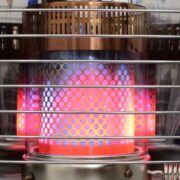Your home theater is an investment, and like any investment, it needs to be properly maintained to ensure that it continues to provide you with years of enjoyment. Just as you’d take your car to the mechanic for regular checkups, your home theater system needs to be regularly cleaned and serviced to keep it in top condition as well.
Continue reading below to learn more about home theater maintenance and other related topics.
Why Is Home Theater Maintenance Important
There are many reasons why home theater maintenance is important. Here are just a few:
- To extend the lifespan of your equipment: Regular cleaning and maintenance can help to prevent dust and dirt from building up on your equipment, which can lead to overheating and premature failure.
- To improve performance: Over time, dirt and debris can accumulate on your equipment, which can degrade its performance. Regular cleaning can help to restore your equipment’s performance to like-new levels.
- To prevent problems: Regular maintenance can help to identify and prevent potential problems before they become major issues. This can save you time and money in the long run.
How Often Should You Clean And Service Your Home Theater System
The frequency with which you should clean and service custom home theater systems will depend on several factors, such as the type of equipment you have, the environment in which you live, and how often you use your system. Nonetheless, a good rule of thumb is to clean your equipment at least once a month and service it every six months to a year.
What Should You Clean And Service In Your Home Theater System
The specific components of your home theater system that you need to clean and service will vary depending on the type of equipment you have. Nonetheless, some general guidelines include:
- Projector: Clean the lens and filters of your projector regularly to prevent dust buildup and ensure optimal image quality.
- Receiver: Dust the vents on your receiver to prevent overheating.
- Speakers: Clean the grills and cones of your speakers to prevent dust buildup and improve sound quality.
- TV: Dust the screen of your TV to prevent scratches and improve image quality.
- Cables: Inspect your cables for damage and replace any that are frayed or cracked.
In addition to regular cleaning and maintenance, there are a few other things you can do to help keep your home theater system in top condition:
- Use a surge protector. This will help to protect your equipment from power surges.
- Avoid placing your equipment in direct sunlight or in areas with high humidity.
- Handle your equipment with care. Don’t touch the lenses or screens of your equipment, and don’t stack equipment on top of each other.
By following these simple tips, you can help to extend the lifespan of your home theater system and ensure that you continue to enjoy years of crystal-clear audio and video.
Additional Tips For Home Theater Maintenance

- Keep your home theater system cool. Overheating can damage your equipment, so make sure that your system has adequate ventilation.
- Use a humidifier if you live in a dry climate. Dry air can damage your equipment, so using a humidifier can help to keep the air in your home at a healthy humidity level.
- Regularly check your cables. Make sure that your cables are securely connected and that there’s no damage to the insulation.
- Update your firmware. Firmware updates can fix bugs and improve the performance of your equipment.
- Calibrate your system. Calibrating your system can help to ensure that you are getting the best possible audio and video quality.
By following the abovementioned steps, you can help to keep your home theater system in top condition and ensure that you continue to enjoy years of cinematic entertainment.
Troubleshooting Common Home Theater Issues
Despite your best maintenance efforts, minor glitches or issues can arise in your home theater system. Below are a few points to guide you to troubleshooting some common problems you might encounter. Read on to learn more.
- No Sound Or Picture Available: Check the connections between your devices and ensure they are secure. Verify that the power is on for all components. If using a projector, ensure the lens cover is removed.
- Distorted Sound Or Picture: Inspect speaker cables for damage and ensure they’re properly connected. Check the HDMI cables for any kinks or loose connections. If using a projector, adjust the focus and zoom settings.
- Remote Control Not Working: Replace the batteries in the remote control. Clean the sensor on the remote and the device it controls. Ensure there are no obstructions between the remote and the device.
- Device Not Responding: Unplug the device from power for 30 seconds, then plug it back in. Check for firmware updates and install any available updates.
- Intermittent Device Issues: If you experience intermittent issues, such as flickering lights or sudden audio drops, inspect the power supply and ensure it can handle the load of all connected devices.
Professional Home Theater Maintenance Services
For more in-depth maintenance and troubleshooting, consider seeking professional services from a qualified home theater installer or technician. They can perform comprehensive cleaning, check for loose connections, identify potential hardware issues, and provide expert advice on optimizing your system’s performance.
In Conclusion
Regular maintenance isn’t just a chore; it’s an investment in your home theater system and the entertainment it provides. By following the simple yet effective tips featured above, you can extend the lifespan of your equipment, optimize its performance, and ensure years of cinematic enjoyment in the comfort of your own home.
A well-maintained at-home entertainment system is a gateway to countless hours of captivating entertainment, making it a worthwhile investment in your leisure time.














Comments